Beloved for gruffly supportive dads, Alan Arkin was more than ‘Little Miss Sunshine’
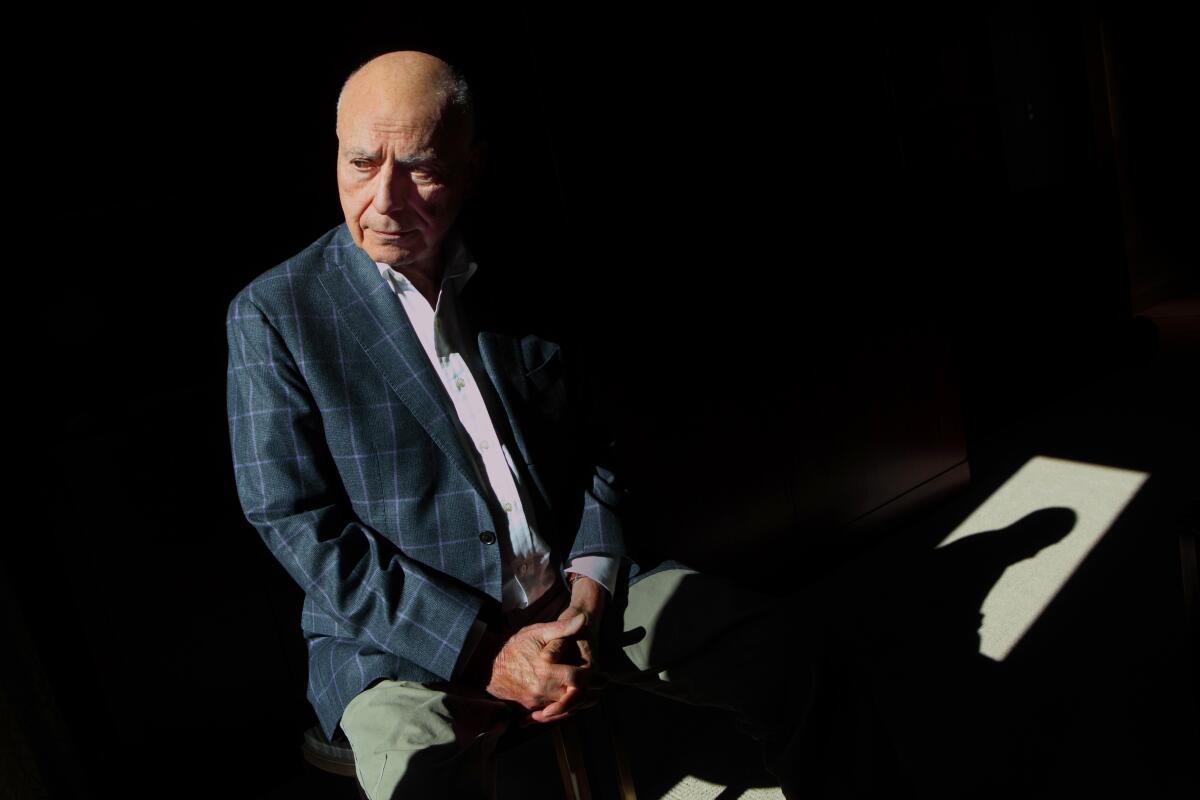
- Share via
Though he became most celebrated for his endearing grouches, Alan Arkin was a versatile performer, equally capable of drama or comedy, with an idiosyncratic knack for combining the two. With a career that touched stage, screen and TV stretching back to the early 1960s, Arkin, who died Thursday at age 89, was working right up to the end of his life, having recently received two Emmy nominations for his role in “The Kominsky Method” and providing a voice for the animated film “Minions: The Rise of Gru.”
Arkin won a Tony for his Broadway debut in 1963’s “Enter Laughing.” He would be nominated for an Academy Award for his first feature film role in 1966’s “The Russians Are Coming, the Russians Are Coming,” and would be nominated again two years later for “The Heart Is a Lonely Hunter.” But it would take him decades to win outright (for “Little Miss Sunshine”), and it’s a tribute to Arkin’s longevity that his career was so rich in the interim.
Below are a selection of movie roles — our personal favorites — that show the unique breadth of Arkin’s talent.
‘Wait Until Dark’ (1967)
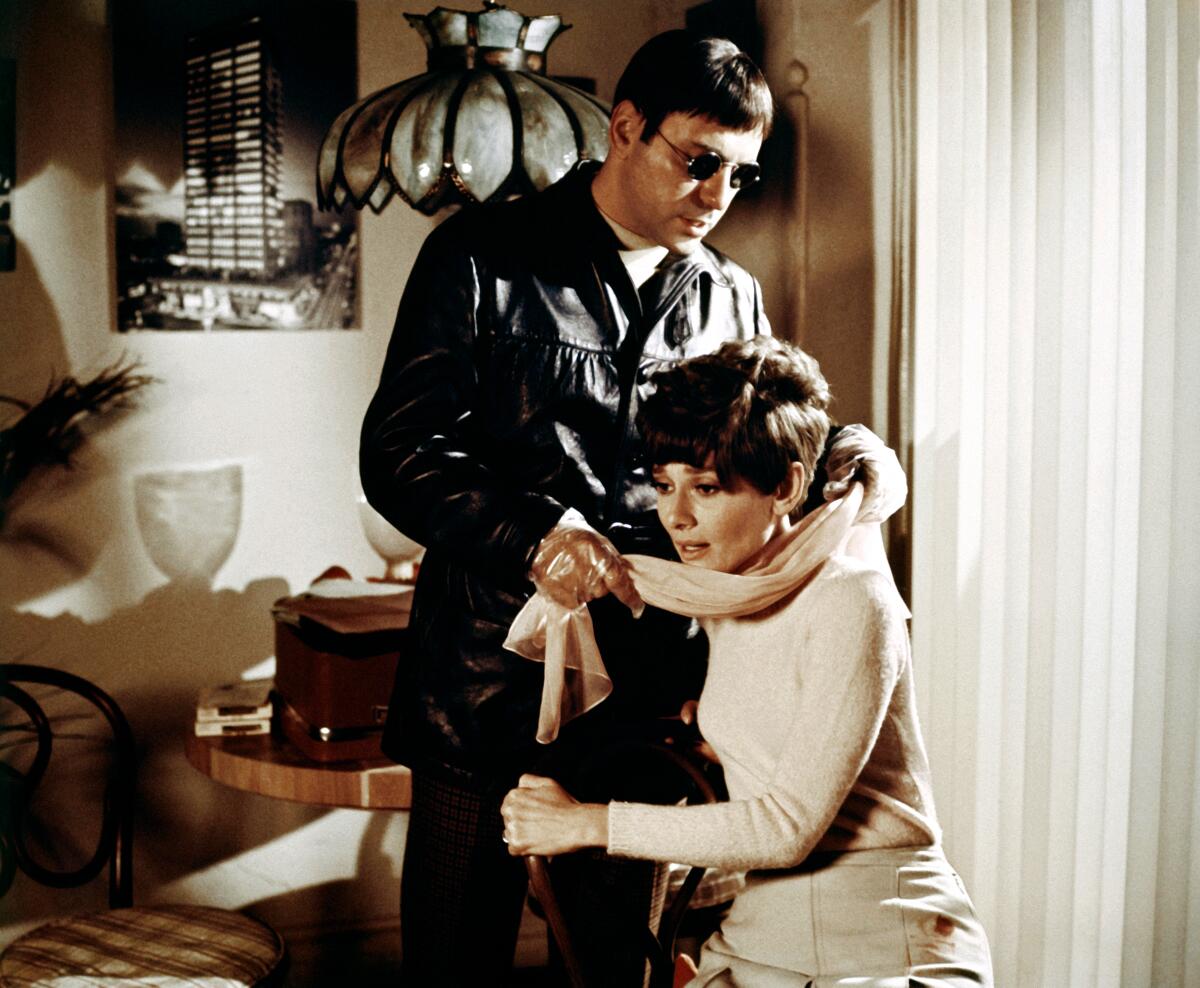
Arkin’s terrifying turn as a ruthless crook stalking a blind Audrey Hepburn is not, on balance, one of his more acclaimed performances. (Reviewing Terence Young’s 1967 screen adaptation of Frederick Knott’s stage play, the New York Times’ Bosley Crowther “found Mr. Arkin a bit disconcerting at times, when he seemed like his comical self imitating Jerry Lewis imitating a tough-talking thug.”) Perhaps it was my early unfamiliarity with Arkin’s comedic persona — “Wait Until Dark” was the first movie I ever saw him in — that made his Harry Roat so unaccountably frightening. Hiding behind grimly impassive shades, whistling idly to himself as he sets the stage for murder and delivering one of the truest jump scares in movie history, he’s a singularly vicious reminder that Arkin could make us scream as well as laugh. The final scene still plays on a loop in my nightmares. —Justin Chang (Available on multiple platforms)
‘Catch-22’ (1970)
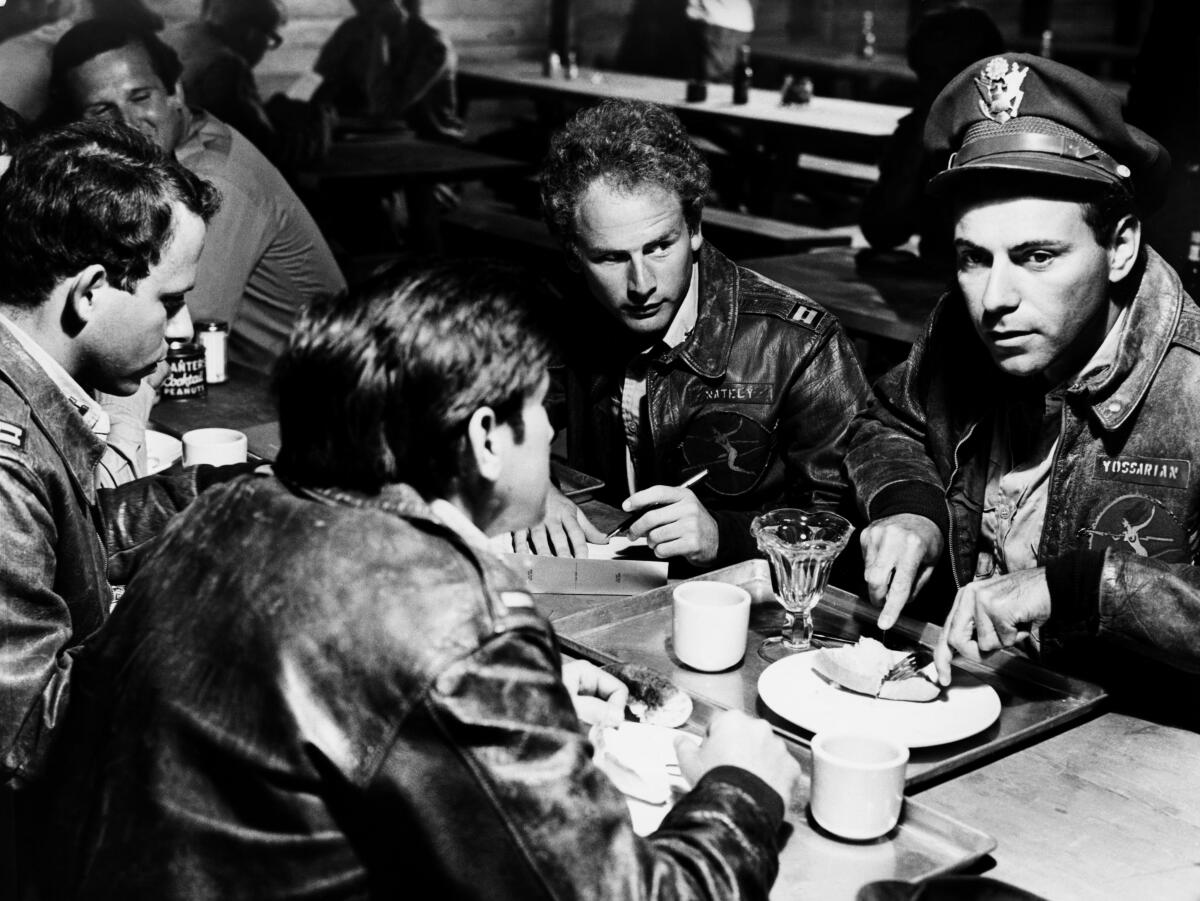
Few films displayed Arkin’s range quite like the 1970 adaptation of Joseph Heller’s landmark novel of antiwar satire. Veering from an antic comedic edge to terrifyingly vivid and tender emotions, Arkin captures the head-spinning absurdity of trying to maintain one’s dignity, sanity and humanity amid the regimented indignities of the military mindset. Directed by Mike Nichols from a script by Buck Henry, the movie was considered a disappointment when it was first released, but now feels fresh and revelatory, marshaling all the forces of large-scale Hollywood filmmaking to create something truly subversive. In a movie with so many moving parts and such an outsized ensemble cast (Orson Welles! Bob Newhart! Art Garfunkel!), Arkin is the still center around which all revolves. —Mark Olsen (Available on multiple platforms)
‘Freebie and the Bean’ (1974)
Unapologetically offensive to several communities and problematic even by 1974 standards, Richard Rush’s odd-couple detective story is a curiosity in Arkin’s filmography. Sliding into the “straight man” role as the buttoned-up, neurotic and, yes, Mexican American Det. Sgt. Dan “Bean” Delgado opposite James Caan’s volatile and racist Det. Sgt. Tim “Freebie” Walker, Arkin was coming off of a string of films and his own directorial debut when he took on this two-hander about bumbling cops assigned to trail an organized crime boss in San Francisco.
What’s surprising about Arkin here, though, is that he’s just as unhinged as Caan. Like co-conspirators in an SNL sketch, their improvisational high jinks escalate until they’re both loose cannons, skirting the edge of satire with a bickering live-wire chemistry. Choosing chaos in a post-”Dirty Harry” world, they helped set the template for the buddy cop classics of the 1980s (“48 Hours,” “Lethal Weapon”) that would follow. —Jen Yamato (Available on multiple platforms)
‘The In-Laws’ (1979)
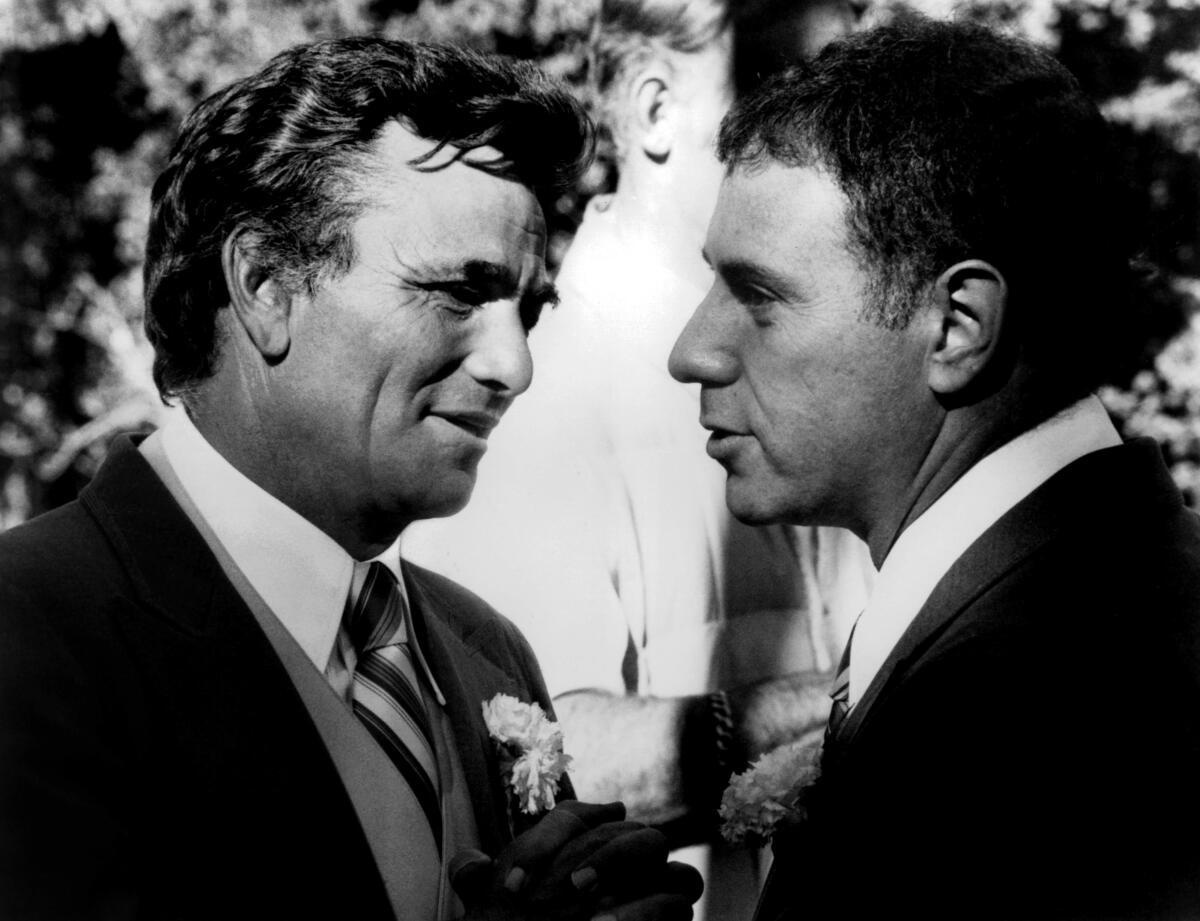
Arkin found the ideal foil for his unique brand of neurotic intensity in the shambling Peter Falk, and in director Arthur Hiller’s zany comedy, the two deliver a master class in odd-couple chemistry. As mild-mannered dentist Sheldon Kornpett, Arkin finds himself unwittingly drawn into the shadowy world of Falk’s CIA operative Vince Ricardo, whose son is set to marry Kornpett’s daughter. As the two become embroiled in an increasingly bonkers series of misadventures that take them from New Jersey to Central America, the naturalistic performances of Arkin and Falk keep the story grounded, no matter how madcap — and, yes, “serpentine” — it gets. —Josh Rottenberg (Available on multiple platforms)
‘Glengarry Glen Ross’ (1992)
Sometimes called an acting master class, James Foley’s vicious real estate drama is better described as a death-defying circus stunt: How do you survive in the bear pit when the red meat is a script by David Mamet (based on his celebrated stage play) and the animals are Al Pacino, Jack Lemmon, Ed Harris and Alec Baldwin? Look to Arkin for the answer. His meek salesman George Aaronow, past his prime and lacking the vigor to do much about it, is the performance that really grabs you, because it’s the most humanly scaled, the most believable. (Watch him get entrapped by Harris, who discusses a potential crime and marks him as a sap in a matter of seconds.) The movie supplies zingers on a scene-by-scene basis, but Arkin nails his moments indelibly: No one will complain about not wanting to go to lunch quite as pathetically. —Joshua Rothkopf (Available on multiple platforms)
‘Slums of Beverly Hills’ (1998)
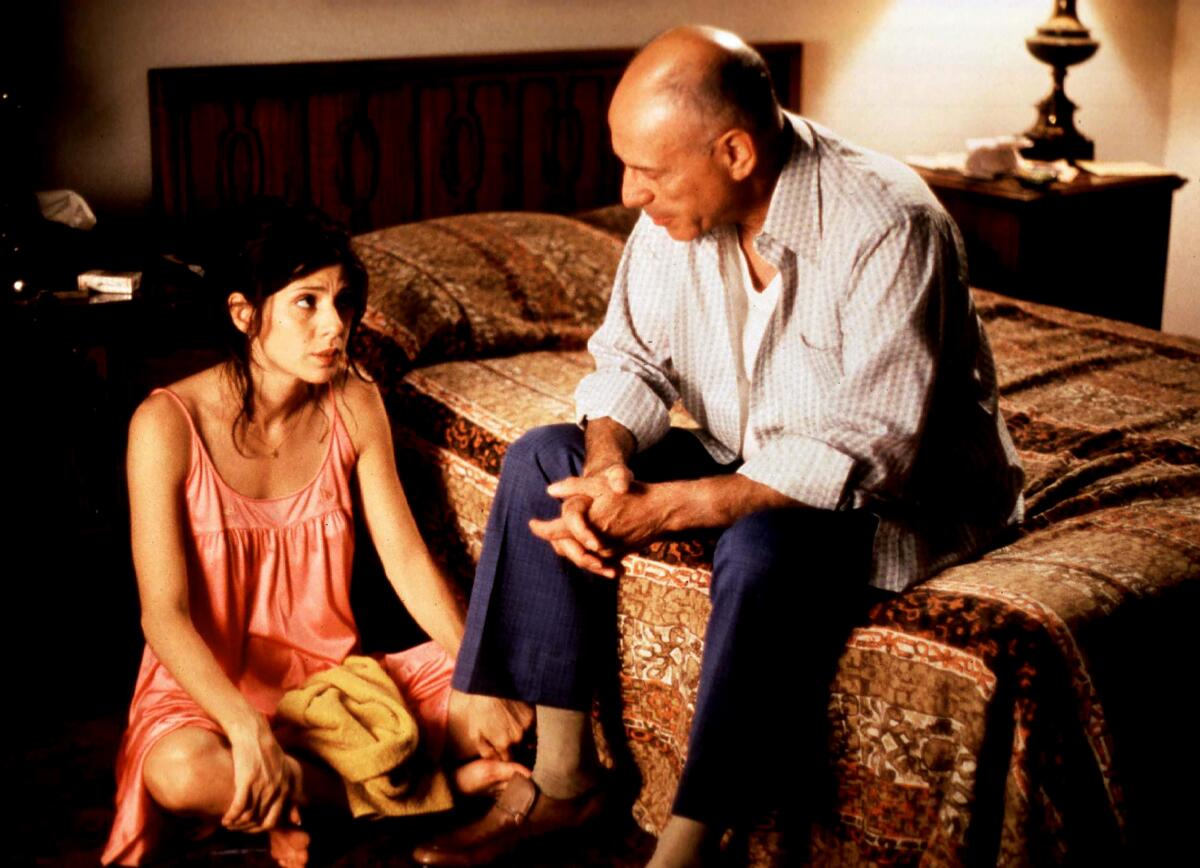
As Murray Abromowitz, a failing car salesman and single father hustling and scraping to hold it together for his three children in writer-director Tamara Jenkins’ semi-autobiographical debut feature, Arkin displays a real generosity of spirit, allowing space for others to shine even as he makes the most of every moment he’s onscreen. He never overshadows his young co-stars Natasha Lyonne, David Krumholtz and Kevin Corrigan, even as he dispenses cracked wisdom and hard-won life lessons along the way, crafting a warmhearted portrait of American failure and the small-scale ambitions that keep people striving for something better. —Mark Olsen (Available on multiple platforms)
‘Little Miss Sunshine’ (2006)
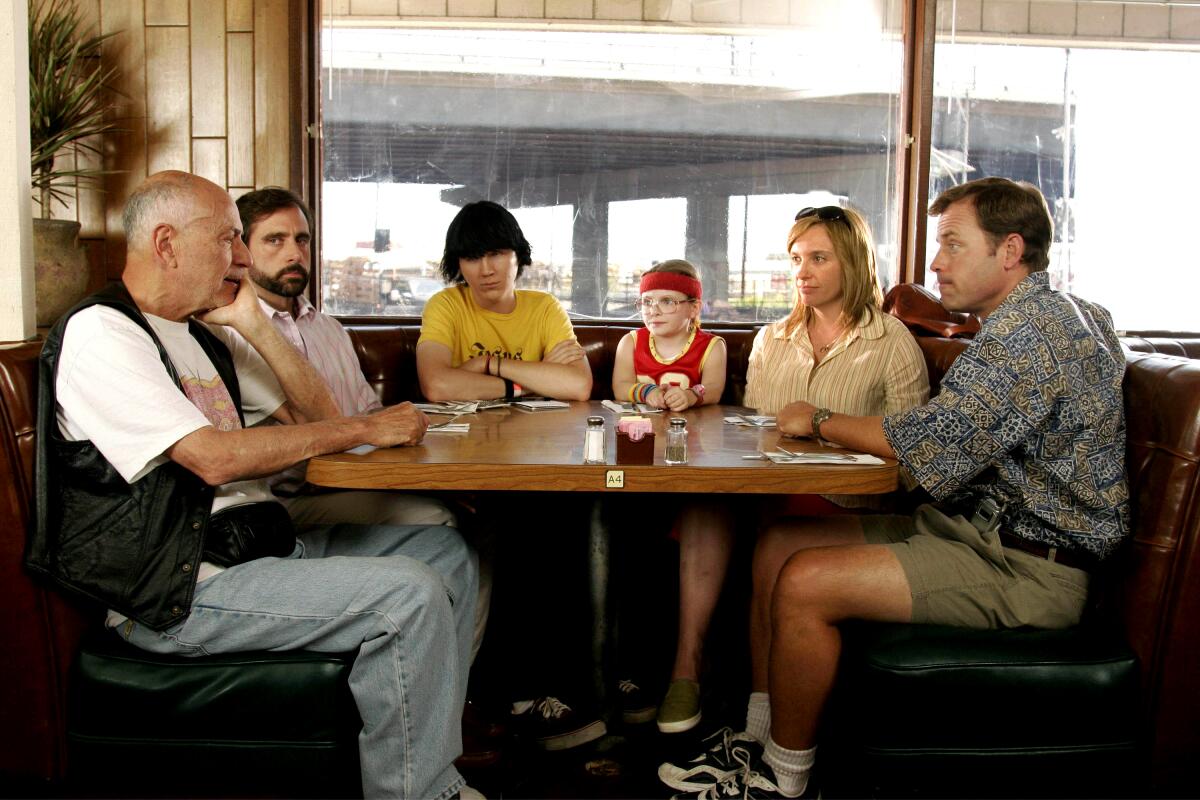
As Edwin, the heroin-snorting grandfather asked to leave his retirement home, Arkin is as perfect as it comes. There’s no trace of an actor playing rude or unfiltered; there is only that guy, that no-f—s-left-to-give, blithely-dropping-the “I still have shrapnel in my ass from World War II”-card, giving-the-kids-R-rated-advice guy. The actor benefited from Michael Arndt’s bull’s-eye of a script, but his performance makes the words sing. At Edwin’s soft center is a person capable of real love, witnessed in his connection with his granddaughter, Olive. The scene in which she confesses her fears and he comforts her is a reminder of Arkin’s compassionate depths (also seen in “The Heart Is a Lonely Hunter,” in which he plays a striving deaf-mute). His only Oscar was well-deserved. —Michael Ordoña (Available on multiple platforms)
‘Argo’ (2012)
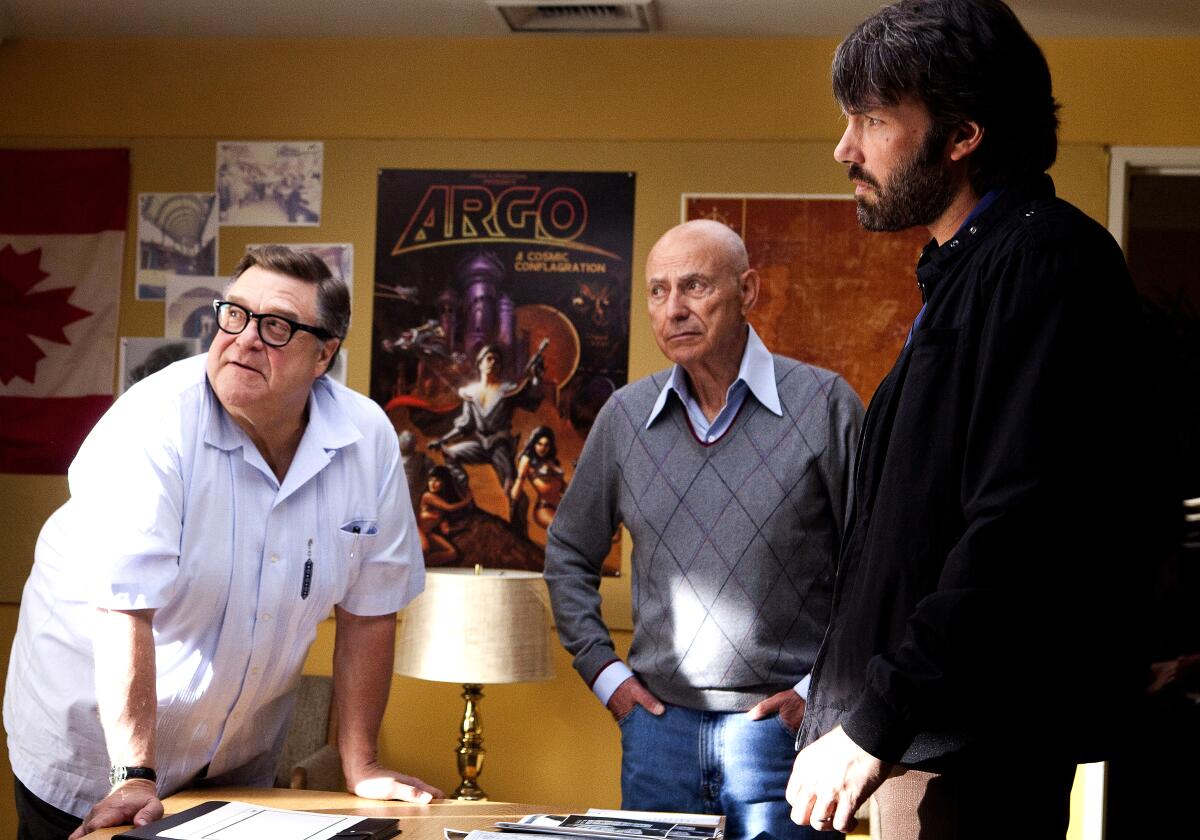
When Ben Affleck began casting his best picture Oscar winner “Argo,” the first person he called was Alan Arkin. And when Arkin comes onscreen, you immediately understand why. “Argo” hinges on a fake movie project created to help extract six Americans from Iran, and who better to do a showbiz satire than Arkin, an actor who told me once — screamed it, actually — that Hollywood is a ridiculous place.
Arkin plays Lester Siegel, “Argo’s” over-the-hill movie producer, with a deadpan abandon, making the film’s satire land and one-liners sing. Lester drives a gold Rolls-Royce, but he’s in on the joke, as was Arkin, who wholly shared Lester’s view that he’d “rather stay home and count the wrinkles on my dog’s ass” than attend an evening in his honor. Arkin had no choice but to attend a few of those over the years. He was simply too good not to celebrate. —Glenn Whipp (Available on multiple platforms)
More to Read
Only good movies
Get the Indie Focus newsletter, Mark Olsen's weekly guide to the world of cinema.
You may occasionally receive promotional content from the Los Angeles Times.











